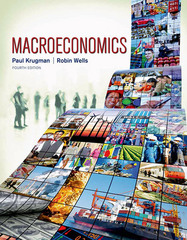Question
Suppose the Canadian dollar/pound exchange rate was fixed at 1.63. If the demand-supply conditions in the private Forex market changed such that the exchange rate
Suppose the Canadian dollar/pound exchange rate was fixed at 1.63. If the demand-supply conditions in the private Forex market changed such that the exchange rate tends to increase, which of the following will be true?
A .The private Forex market will clear the excess supply/demand on its own.
B .The Canadian central bank will sell Canadian dollars in the Forex market.
C .The situation described implies the pound is appreciating and the Canadian central bank should buy pounds in the Forex market.
D .The situation described implies the pound is depreciating and the Canadian central bank should sell pounds in the Forex market.
E. The Canadian central bank will buy Canadian dollars in the Forex market.
Suppose both India and Japan follow fixed exchange rate regimes and the rupee/yen exchange rate is fixed at 0.55. The interest rate in India is 6 percent. If the interest rate parity holds between the two countries, how much can an Indian investor expect to earn from a Japanese asset if he expects the exchange rate to remain unchanged?
a. The Indian investor can earn 6 percent from his Japanese investment.
b. The Indian investor can earn 8 percent from his Japanese investment.
c. The Indian investor can earn 1.67 percent from his Japanese investment.
d. The Indian investor can earn 3.3 percent from his Japanese investment.
e. The Indian investor can earn 10.9 percent from his Japanese investment.
Suppose China and Russia are operating under the gold standard and both purchasing power parity and interest rate
parity hold. If new gold reserves are found in Russia when the GDP level is fixed: a. the domestic interest rate in Russia will increase.
b. the domestic inflation rate in Russia will fall.
c. the investment in Russian assets will increase.
d. the investment in Chinese assets will increase.
e. the domestic inflation rate in China will fall.
Suppose E$/ = 1.54 and an American investor expects the exchange rate to increase to 1.62 in a year's time. If the British interest rate is 3.2 percent, then what should be the American interest rate for the interest rate parity (IRP) to hold? If the U.S. and England followed fixed exchange rate regimes, such that the exchange rate was fixed at 1.54, would the American interest rate (satisfying IRP) be different?
a. 9.57 percent; 3.2 percent
b. 8.56 percent; 8.56 percent
c. 8.56 percent; 3.2 percent
d. 9.57 percent; 9.57 percent
e. 8.56 percent; 9.57 percent
Step by Step Solution
There are 3 Steps involved in it
Step: 1

Get Instant Access to Expert-Tailored Solutions
See step-by-step solutions with expert insights and AI powered tools for academic success
Step: 2

Step: 3

Ace Your Homework with AI
Get the answers you need in no time with our AI-driven, step-by-step assistance
Get Started


